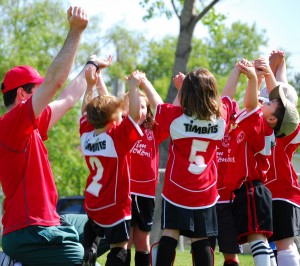A new command I give you: Love one another. As I have loved you, so you must love one another. John 13:34
Marriage. It is fun and exciting at first; however, it is much more challenging to nurture and grow over the long haul. Falling in love and deciding to get married is like parachuting for the first time. Initially your decision of whether or not to parachute is filled with terror, excitement, and anticipation. All the focus is on whether or not you will actually go through with it and whether or not you will survive.
Once the wedding is over, now what? Couples cope with the transition from engagement to marriage differently. Some panic and frantically try to keep the drama going. They are seeking another high like they had when they were courting. They want to date instead of dig in and develop their relationship. Others shuffle ahead in their relationship as if they were on autopilot. They mindlessly move forward, establishing their careers, having children, and struggling to be the best parents they can be. Whether we seek the dating high or the deadness of numbing out, all of us can benefit greatly by practicing a few basic strategies.
All of our marriages will benefit from some coaching and guidance. We seem more equipped to find a mate and less prepared to know what to do once we are married. Most people do not seek out help until there is some breakdown of significance. All of us want marriages that are better than our parents’; however, eventually we realize that we have our parents’ marriage.
I want to introduce you to four principles (F-E-A-R) that I believe make up the foundation of healthy, growing and vital relationships. I will briefly introduce each of the principles and elaborate on them in future blogs. At CLE, we have proven that practicing these principles will transform your relationships with yourself, with others, and with God.
Feelings are the language of the heart. Our hearts are moved when we are touched by meaningful experiences and encounters. When our hearts are moved, feelings are released. Although feelings occur naturally, most of us have learned to deny and numb ourselves to our feelings. To renew and revitalize our relationships we must reconnect with our hearts and our feelings.
As you become increasingly aware of your feelings, the next step is to express them. Experiencing your feelings without expressing them is both unhealthy and stingy. Feelings are to be both experienced and expressed. Feelings enable our hearts to become attached to each other. Feelings expressed build safety, comfort and closeness with others. Expressing our feelings floods your relationships with energy, joy and aliveness. Expressing our feelings helps us connect with our deepest hungers.
Attachment is the process infants go through when they bond with their mothers. For a child to develop a healthy sense of attachment they need to be accurately perceived in the here and now, with positive regard, consistently, and unconditionally. As adults and especially as partners, we need our attachment needs met continually. We don’t top needing to be seen and heard ever. We not only need to feel and express ourselves; we need to provide a safe haven for our spouses to feel and express themselves.
RISK
Take action. Feel, express, and engage with your partner. Listen to them, learn what they want and need, and give it to them. Risk feeling awkward and doing something that might not feel comfortable. Take the initiative and lead in your relationship. Both partners need to think of how they can invest in their marriage as well as building into themselves.
Watch for the upcoming blogs where we will unpack the importance of each of these strategies: Feel/Express/Attach/Risk. Love one another.














